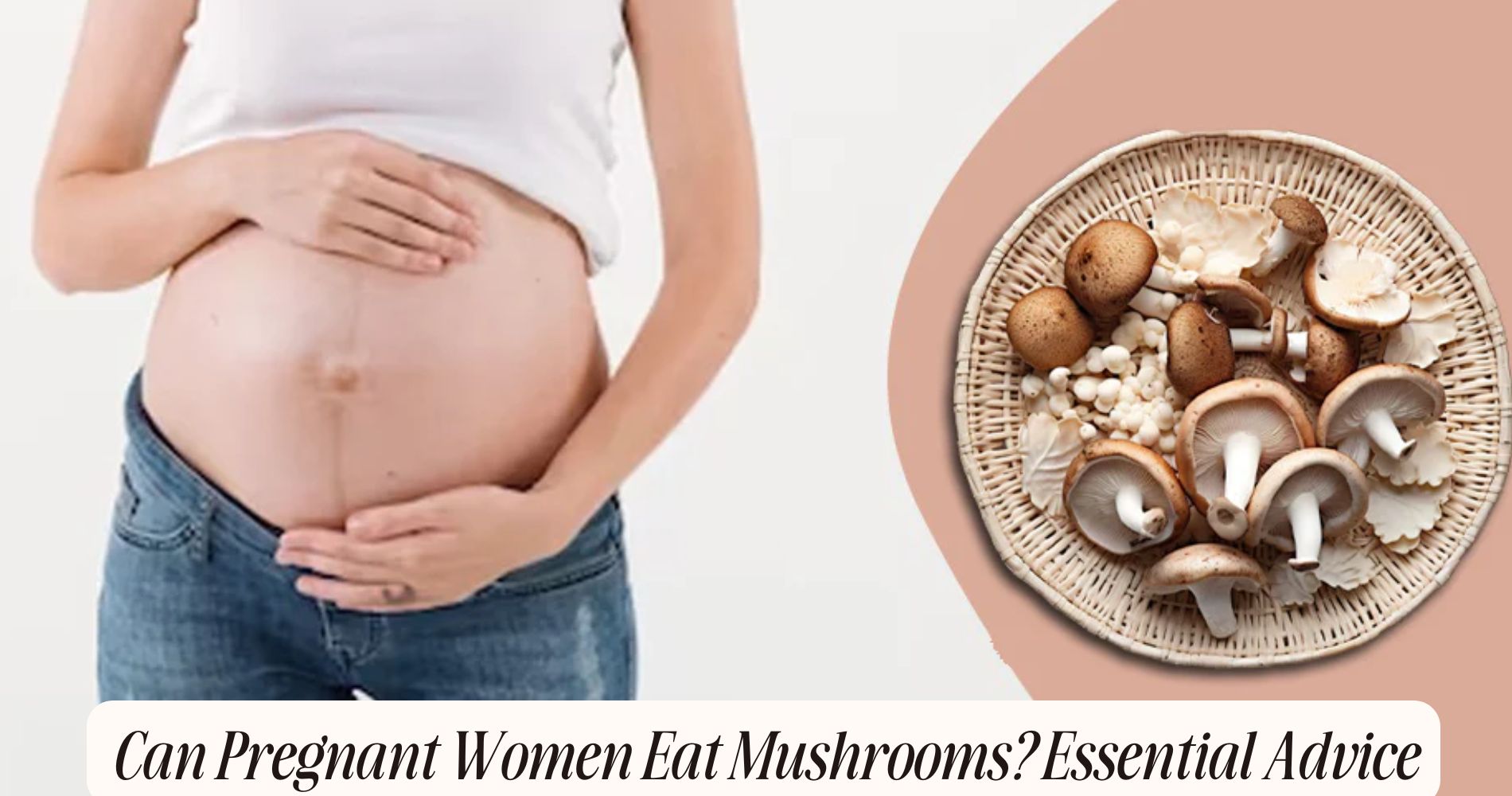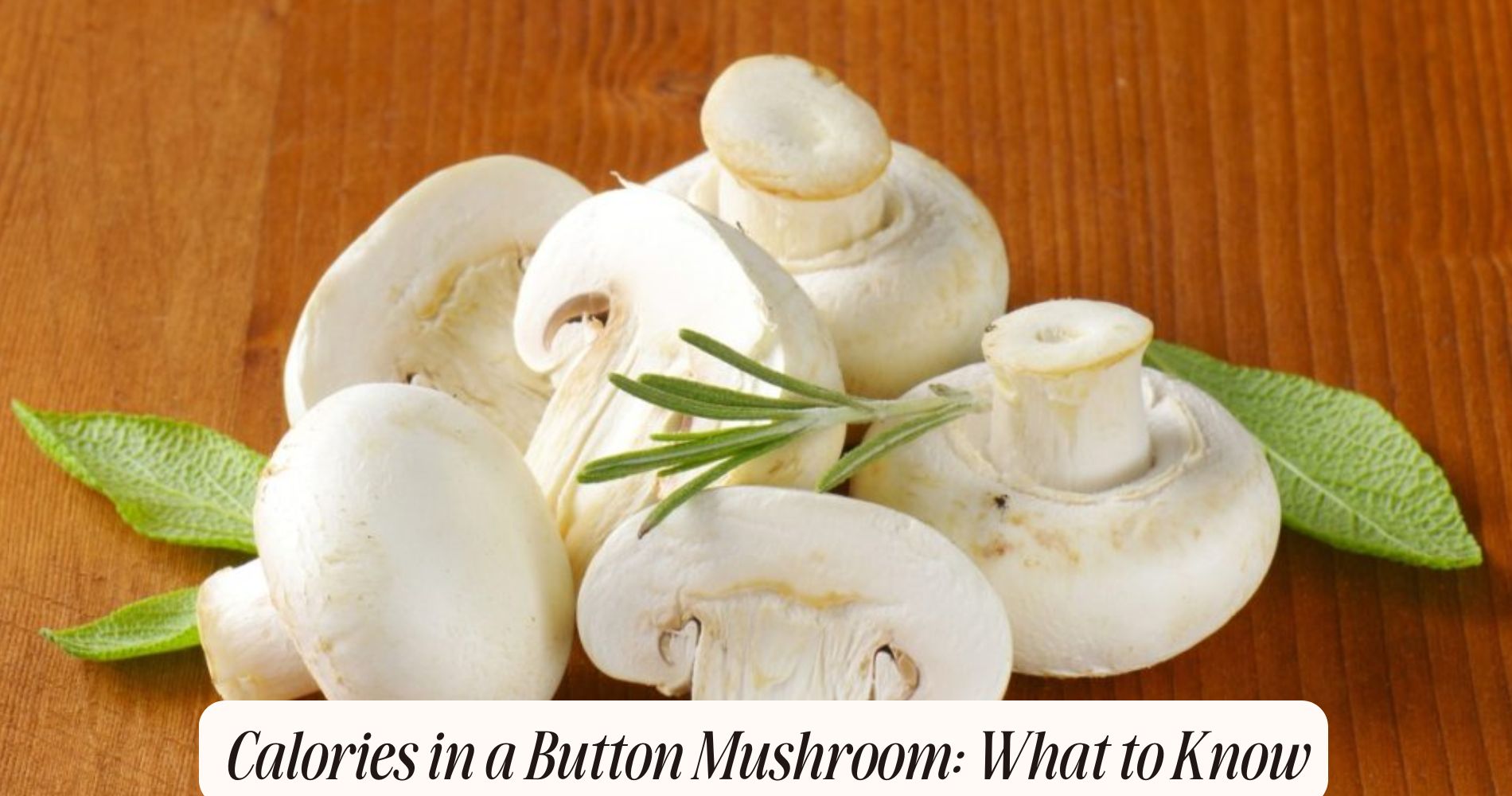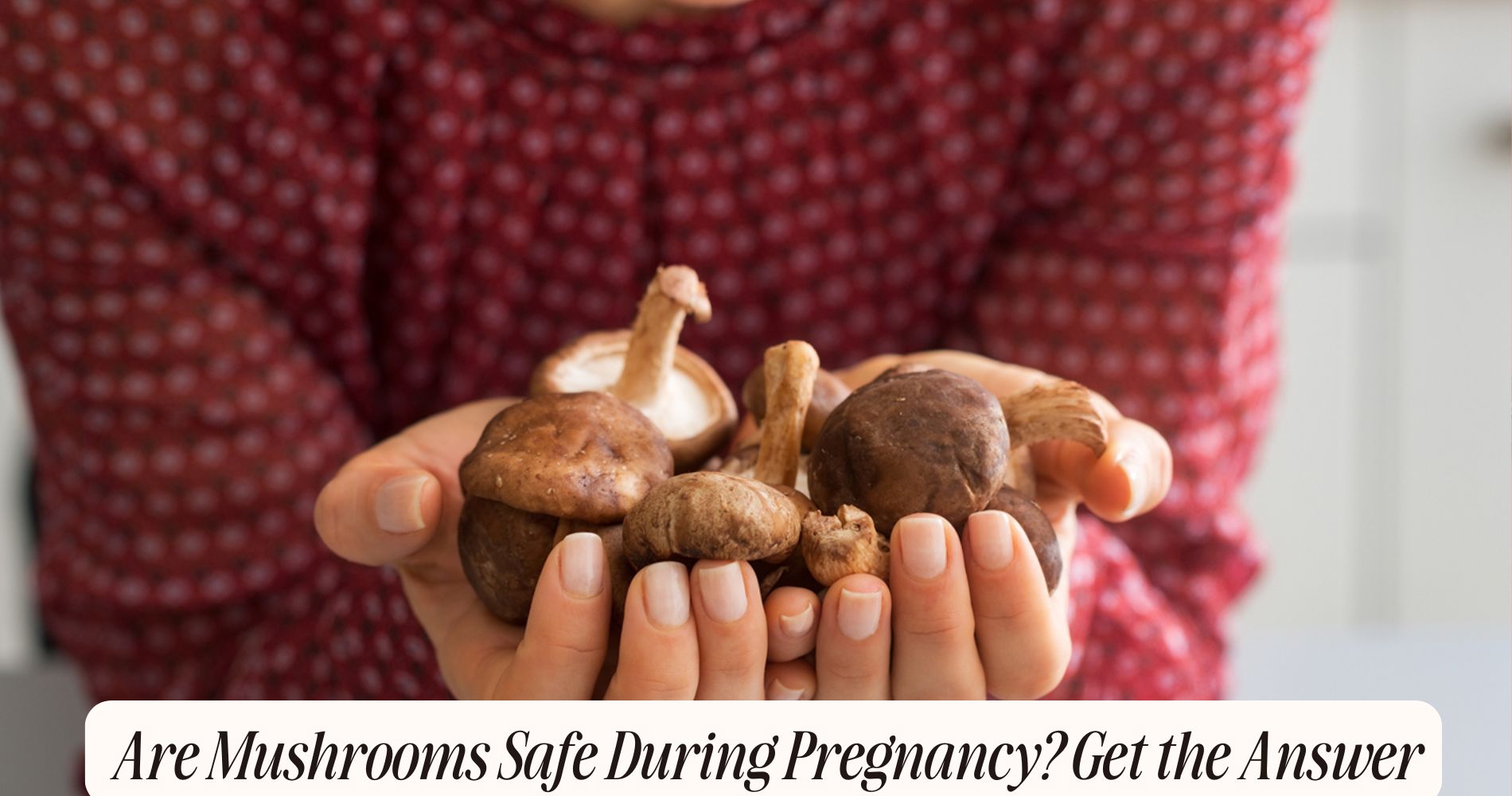
Can Pregnant Women Eat Mushrooms? Essential Advice
Can pregnant women eat mushrooms? Yes, you can eat mushrooms during pregnancy, as they're packed with essential nutrients like vitamins B and D. Stick to safe varieties like button, shiitake, and portobello, and make sure to cook them thoroughly to eliminate harmful bacteria. Avoid wild mushrooms due to toxicity risks. Moderation is key, so aim for 2-3 servings a week, and be mindful of any allergies or sensitivities, introducing them gradually. It's always smart to consult your healthcare provider for personalized advice about your diet. There's a lot more to reflect upon when it comes to safe mushroom consumption, so keep exploring this topic.
Nutritional Benefits of Mushrooms
Many people mightn't realize just how nutritious mushrooms can be, especially for pregnant women. These fungi come in various mushroom varieties, each offering unique health benefits that can support your nutritional needs during pregnancy.
For instance, shiitake and maitake mushrooms are rich in vitamins B and D, which are fundamental for energy production and immune function.
Mushrooms also contain important minerals like selenium and potassium. Selenium acts as an antioxidant, protecting your cells from damage, while potassium helps regulate blood pressure, which is significant during pregnancy.
Additionally, many mushroom varieties are low in calories but high in fiber, aiding digestion and promoting a feeling of fullness.

Moreover, mushrooms are a plant-based source of protein, which is crucial for the growth and development of your baby. Incorporating a variety of mushrooms into your diet can enhance your meals while providing these important nutrients.
However, it's important to prepare them properly to maximize their benefits. Keep in mind that fresh, organic mushrooms are typically the best choice to guarantee you're getting the most nutrients possible.
Safe Types of Mushrooms
When you're pregnant, choosing safe types of mushrooms is essential for your health and your baby's development.
Certain varieties, like button, shiitake, and portobello, offer nutritional benefits while being safe to eat during pregnancy.
Understanding which mushrooms are recommended can help you enjoy their flavors and nutrients without worry.
Nutritional Benefits of Mushrooms
Mushrooms are a nutrient-packed food that can offer a variety of health benefits, especially for pregnant women. These edible fungi come in different mushroom varieties, each providing unique nutrients and advantages.
For instance, mushrooms are rich in essential vitamins like B vitamins, which play an important role in energy metabolism and fetal development. They also contain minerals such as selenium, which is crucial for immune function and cellular health.
Moreover, mushrooms are a good source of dietary fiber, promoting digestive health—a common concern during pregnancy. They're low in calories, making them an excellent choice for maintaining a balanced diet.
Additionally, some mushroom varieties contain antioxidants, helping to combat oxidative stress and support overall health.
Including mushrooms in your diet can also contribute to your daily intake of vitamin D, particularly if you choose varieties exposed to sunlight or UV light. This nutrient is important for bone health and immune support during pregnancy.
As you consider incorporating mushrooms into your meals, remember their versatility allows you to enjoy them in soups, stir-fries, or salads, making it easier to reap their health benefits.
Recommended Mushroom Varieties
Which types of mushrooms are safe for pregnant women to eat? When considering mushroom sources, opt for well-known varieties that are commonly consumed.
Edible mushrooms like white button, cremini, and shiitake are generally safe and provide essential nutrients. These mushrooms aren't only delicious but also packed with vitamins and minerals that support your health during pregnancy.
Medicinal mushrooms, such as reishi and chaga, have gained popularity for their potential health benefits. However, it's important to consult your healthcare provider before including these in your diet, as their effects during pregnancy aren't thoroughly studied.

Stick with familiar edible varieties to minimize risk. Always make sure that any mushrooms you consume are thoroughly cooked. Raw mushrooms can harbor harmful bacteria, which could pose risks to both you and your baby.
Additionally, avoid foraging for wild mushrooms unless you're an expert, as some varieties can be toxic.
Risks of Eating Mushrooms
Eating mushrooms during pregnancy can pose certain risks that expectant mothers should be aware of. One significant concern is mushroom toxicity, particularly with wild mushrooms. Many wild varieties aren't only difficult to identify but can also be poisonous, leading to severe health issues for both you and your baby.
Even small amounts of toxic mushrooms can result in gastrointestinal distress and other serious complications.
While cultivated mushrooms, like button or shiitake, are generally safe, you should still exercise caution. Allergic reactions can occur, and some people may experience sensitivities to certain mushroom types.
It's crucial to verify that any mushrooms you consume are fresh and properly stored, as spoiled mushrooms can lead to foodborne illnesses.
Moreover, the nutritional value of mushrooms can vary widely, depending on the variety. If you're not sure about the safety of a specific type, it's best to avoid it altogether during pregnancy.
Always consult with your healthcare provider for personalized advice, especially if you have any existing health conditions or dietary restrictions. Being informed will help you make the best choices for your health and your baby's well-being.
Cooking Methods for Safety
When it comes to mushrooms during pregnancy, cooking them thoroughly is essential for safety.
You should always avoid consuming raw mushrooms, as they can harbor harmful bacteria and toxins.
Opt for methods like sautéing, boiling, or roasting to guarantee they're safe and enjoyable to eat.
Safe Cooking Techniques
Many pregnant women wonder about the safest ways to prepare mushrooms to avoid any potential health risks. To guarantee safety, you should cook mushrooms thoroughly. Cooking them at high temperatures can kill harmful bacteria and parasites that might be present. Aim for an internal temperature of at least 165°F (74°C) to guarantee they're safe to eat.
Sautéing, grilling, or baking mushrooms are effective methods that help achieve these safe cooking temperatures. Avoid slow-cooking methods like steaming, which may not reach the necessary temperatures for complete safety. Additionally, make certain to cook mushrooms until they're tender, as this indicates they've been heated adequately.
When storing mushrooms, proper mushroom preservation is key. Keep them refrigerated and use them within a few days of purchase to minimize the risk of spoilage.
Always wash them thoroughly before cooking, and consider discarding any mushrooms that show signs of mold or sliminess.
Avoid Raw Mushrooms
Pregnant women should consistently avoid raw mushrooms due to the potential risks associated with consuming them uncooked. Raw mushroom dangers primarily come from the possibility of contamination with harmful bacteria, such as E. coli or Salmonella. These pathogens can pose serious health risks, especially during pregnancy when your immune system is more vulnerable.
Cooking mushrooms thoroughly can greatly reduce these risks. Heat not only kills bacteria but also breaks down certain toxins that some mushrooms may contain. By cooking mushrooms, you guarantee cooking safety, allowing you to enjoy their nutritional benefits without jeopardizing your health or that of your baby.
When preparing mushrooms, consider various cooking methods like sautéing, grilling, or baking. These techniques not only enhance flavor but also guarantee that you're consuming safe, properly cooked mushrooms.
Additionally, always wash mushrooms before cooking to remove any dirt or pesticides.
Portion Control Guidelines
For expectant mothers, understanding portion control when it comes to mushrooms is crucial for both health and nutrition. While mushrooms can be a nutritious addition to your diet, it's important to monitor portion sizes to avoid any potential risks.
Generally, a serving size of cooked mushrooms is about half a cup. This amount provides beneficial nutrients without overwhelming your system.

As you plan your meals, aim for a serving frequency of two to three times a week. This helps guarantee you're not overloading on certain compounds found in mushrooms while still reaping their health benefits.
It's also important to choose a variety of mushrooms, such as button, shiitake, or portobello, to diversify your nutrient intake.
Allergies and Sensitivities
When adding mushrooms to your diet during pregnancy, it's vital to be aware of potential allergies and sensitivities. Although mushrooms are generally safe for most people, some individuals may experience mushroom allergies. This can lead to varying sensitivity symptoms, which can manifest as skin rashes, hives, or gastrointestinal distress.
If you've never eaten mushrooms before, it's wise to introduce them gradually into your diet. Monitor how your body reacts during this period. If you notice any unusual symptoms after consumption, it's important to take into account that you may have a sensitivity or allergy to mushrooms.
Pregnant women are often more susceptible to food allergies due to hormonal changes, so staying vigilant is essential. Common sensitivity symptoms include nausea, vomiting, or abdominal pain.
If you experience any of these after eating mushrooms, it's best to avoid them altogether and consult your healthcare provider.
Expert Recommendations
Experts recommend that you approach mushroom consumption during pregnancy with caution. While mushrooms can be a nutritious addition to your pregnancy diet, it's important to focus on safe mushroom selection.
Stick to commercially available varieties like button, portobello, and shiitake mushrooms, as these are generally considered safe for pregnant women. Avoid wild mushrooms unless you're absolutely certain of their safety, since many are toxic and can cause severe illness.
When preparing mushrooms, always cook them thoroughly. Raw mushrooms may harbor harmful bacteria and parasites, which are particularly risky during pregnancy. Cooking not only enhances their flavor but also eliminates potential health risks.
Incorporating mushrooms into your diet can provide essential nutrients, such as B vitamins, selenium, and antioxidants. However, moderation is key.
It's a good idea to consult with your healthcare provider before making any significant changes to your pregnancy diet. They can offer personalized advice based on your health needs.
SUPER MUSHROOM GUMMIES: A Convenient Wellness Boost for Expecting Moms
Looking for an easy way to enjoy the benefits of mushrooms during pregnancy? SUPER MUSHROOM GUMMIES from Well Gummies are a simple, delicious option. Each vegan gum chew contains 10 functional mushrooms, including reishi, to naturally fuel your brain, energize your body, and support your immune system. With a tasty wild berry flavor, these gummies deliver calmer energy and sharper focus, all without jitters or crashes. Perfect for busy expecting moms, these gummies make it easy to incorporate the power of mushrooms into your daily routine.
Frequently Asked Questions
Can Mushrooms Interact With Prenatal Vitamins or Medications?
Mushrooms generally don't interact negatively with prenatal vitamins or medications. Their nutritional benefits can enhance your diet, but always consult your healthcare provider about mushroom safety and any specific interactions with your prescribed treatments.
Are There Any Specific Mushroom Varieties to Avoid During Pregnancy?
You should avoid wild mushrooms during pregnancy, as they may contain toxins. Stick to cooked mushrooms, like button or shiitake, which are generally safe and nutritious, but always consult your healthcare provider for personalized guidance.
How Should Mushrooms Be Stored for Pregnant Women?
To store mushrooms safely, keep them refrigerated in a paper bag to absorb moisture. For best quality, use them within a week. Always practice safe mushroom handling by washing your hands and utensils before preparation.
Can Pregnant Women Consume Dried or Powdered Mushrooms?
You can consume dried or powdered mushrooms, but guarantee you follow safety guidelines. They offer nutritional benefits, yet always check for quality and avoid varieties that may pose risks during pregnancy for your health and your baby's.
What Are the Signs of Mushroom Poisoning in Pregnant Women?
If you suspect mushroom poisoning, watch for symptoms like nausea, vomiting, abdominal pain, or confusion. Prioritize mushroom safety by ensuring proper identification and avoiding wild varieties, especially during pregnancy, to minimize risks.
Conclusion
To summarize, you can safely enjoy mushrooms during pregnancy, provided you choose the right types and prepare them properly. Focus on well-cooked varieties like button, shiitake, and portobello, and be mindful of portion sizes to avoid any potential risks. Always consult your healthcare provider if you have allergies or specific concerns. By following these guidelines, you can reap the nutritional benefits of mushrooms while ensuring a healthy pregnancy.




